The best junior drivers without an F1 future
Whether it be a lack of funding, behind-the-scenes political manoeuvring or an eventual run of poor results, not all drivers can make it to F1
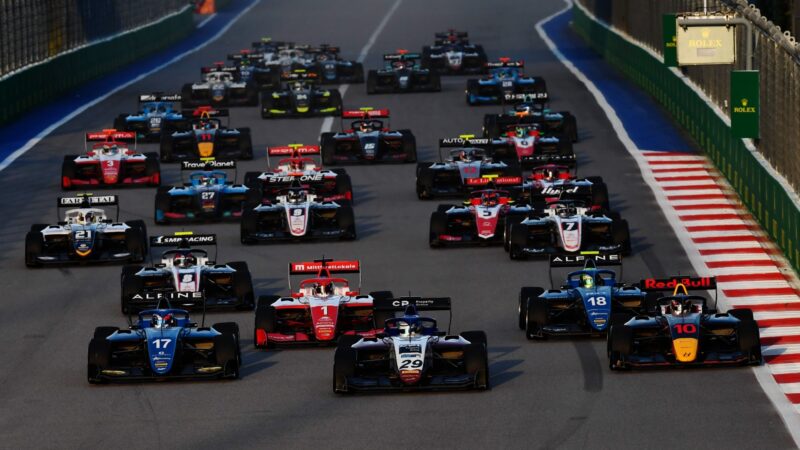
The fight for seats in junior categories is ruthless and some drivers might fall by the wayside
Rudy Carezzevoli/Getty Images
While you might think that full backing from a Formula 1 team guarantees a driver a long and successful journey up the junior categories, it’s not always the case.
As is so often the case in F1, the most promising drivers don’t always get what they deserve and nowhere is that more evident than in the junior driver programmes filled to the brim with talent.
With only a finite number of seats available in F1 in any one season, the chances of getting the nod to drive for the top teams is unlikely most years but with so much competition for places, falling through the cracks is a frequent outcome for many a junior driver.
And that’s not even considering the impact that a lack of funding, or an abundance of it, can do to skew the driver markets in junior formulae.
So while the junior ranks are filled with drivers backed by the top F1 teams, their futures and promotions up the ladder of the single seater pyramid is hardly assured especially with such a state of flux in the technical and sporting worlds of the self-proclaimed pinnacle of motor sport.
Whether it be a lack of funding, behind-the-scenes political manoeuvring or an eventual run of poor results, some young drivers might not get to the top seats despite their ties to an F1 home.
Jüri Vips (FIA Formula 2 – Red Bull)
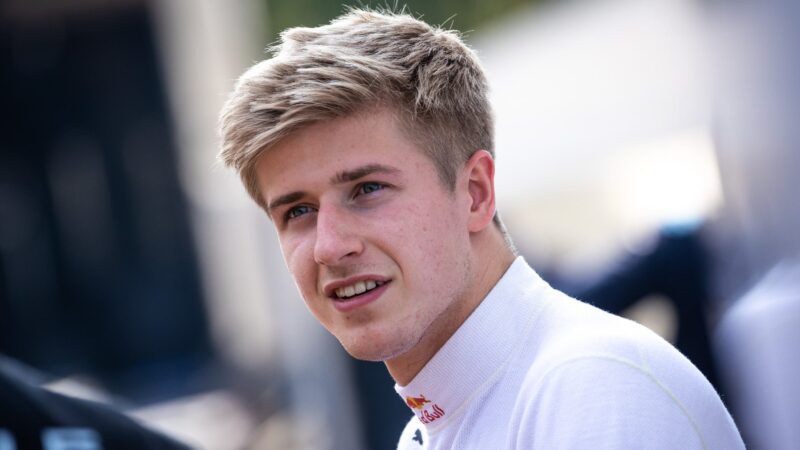
Vips will need a stellar 2022 season
Red Bull Content Pool
Jüri Vips has experienced a turbulent few years in his career from the Covid pandemic that threatened to derail his path to misfortune on track. Despite that global interference, he has been one of the more consistent drivers in any championship he has so far competed in, usually in the hunt and part of the top five in each series.
Karting titles in Estonia led to a Rotax Grand Finals victory in 2014 and it didn’t take him long to achieve a title in single seaters, earning the German F4 title in his second campaign in 2017.
Two years of FIA F3 followed and he did enough to give Red Bull reason to sign him to its junior driver programme in 2018. After finishing the 2019 season in third position, Vips was originally slated to be switching over to do a full season of Super Formula in 2020, the path most recently travelled by Stoffel Vandoorne and Pierre Gasly on their routes to F1.
The pandemic prevented his travel to Japan and Vips found himself filling in for an injured Sean Galael at DAMS in Formula 2 instead. The parachute into a race seat didn’t flatter the Estonian as he battled to get up to speed with his car, though did secure a podium before the year was out, finishing third in the Mugello sprint.
Last season was his first full season and following a swap over to Hitech, he delivered a more consistent campaign when he wasn’t dealing with unreliability or poor luck. It meant he wasn’t in the reckoning for the title. His performances bettered those of team-mate Liam Lawson though the Kiwi was in his rookie campaign.
The notoriously unforgiving Red Bull driver programme is renowned for its cut-throat ruthlessness when it comes to bumping up the promising projects and dumping other deserving talents.
Fellow Red Bull juniors Dennis Hauger and Lawson will both be battling alongside Vips in F2 for the chance at an F1 seat, and the former arrives on the back of the F3 title while Lawson battled for the DTM crown in 2021.
Christian Lundgaard (IndyCar – Alpine)
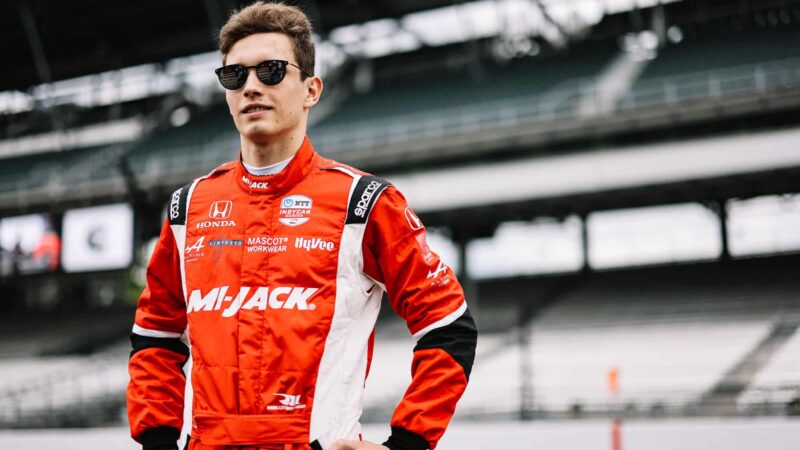
Christian Lundgaard has opted for the American racing way of life
His switch to IndyCar all but signals the end of his Formula 1 hopes but Christian Lundgaard remains part of the Alpine Academy and has arguably been a case of misfortune combined with poor timing.
The Dane will be driving a full season with Rahal Letterman Racing in the US on a multi-year deal but had his Formula 2 stint gone differently, it might have been him in an Alpine test or reserve role this season rather than 2021 F2 champion Oscar Piastri.
Lundgaard was signed to the Renault Sport Academy programme back in 2017, the same year he claimed the SMP F4 Championship and the F4 Spanish Championship. He followed that up with 2nd in the 2018 Formula Renault Eurocup series before moving on to FIA Formula 3 the next year.
From here though things didn’t quite happen according to plan for Lundgaard. A sixth place finish in F3 led to a promotion to F2 for 2020 with ART Grand Prix, the team that had just won the drivers’ title in back-to-back years with George Russell and Nyck de Vries respectively.
Two sprint race wins in 2020 for Lundgaard was as good as it got on the way to 7th in the standings. A follow-up season last year represented little improvement for the Dane as Sauber Junior talent Theo Pourchaire led the way for ART. It was announced in October that Lundgaard would be moving to IndyCar full time in 2022.
With Oscar Piastri fulfilling the role of reserve driver for Alpine this season and fellow juniors Caio Collet and Victor Martins still on the F1 junior ladder, Lundgaard seems to be a victim of timing rather than lacking the potential to make F1.
Paul Aron (? – Mercedes)
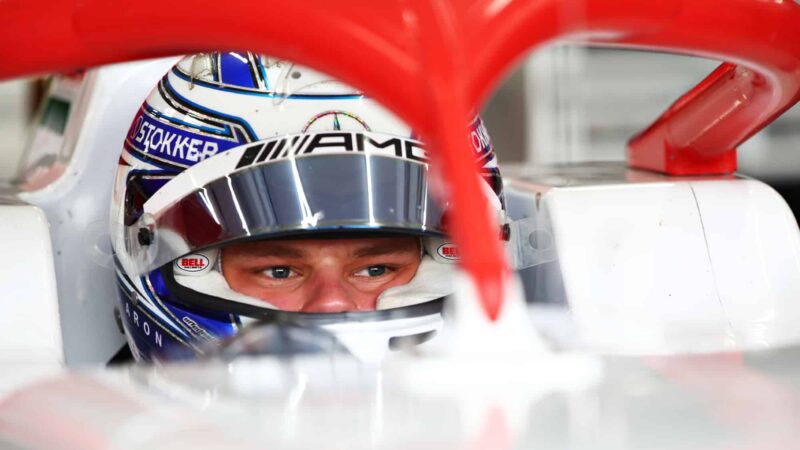
Paul Aron should be in F3 this year but the silly season hasn’t worked in his favour
Joe Portlock - Formula 1/Formula Motorsport Limited via Getty Images
Mercedes’ junior stable isn’t filled to the brim with potential stars in waiting so the pathway to Formula 1 is a little clearer than other rival programmes.
Having said that, it does mean that when compared to the direct competition, there’s little room to hide if the results aren’t what one might hope for on the path to a Mercedes F1 seat.
It’s very early days to be saying that Paul Aron might not make Formula 1. The 17-year-old has just three seasons of single-seater racing experience under his belt and aside from a tricky campaign in Formula Renault Eurocup in 2020 which included four retirements across the year, his results are more than solid.
He bounced back comfortably in his rookie Formula Regional Eurocup Championship (FREC) season in 2021, finishing the year third in the drivers’ standings though it was some way off the champion Grégoire Saucy, albeit a driver five years his senior.
His efforts included two wins and a further four podium finishes as he finished up as the highest-placed PREMA driver in the championship comfortably by the end.
It’s the PREMA question though that could leave Aron hanging on for an F1 future. Despite his strong season with the Italian team, the are no vacancies for an F3 promotion with the team, the next logical step in his development.
A follow-up campaign in FREC could be on the cards then but he will be expected to dominate should he return with PREMA. The delay though in his progress when a promotion up the ladder seemed obvious could work in favour of other Mercedes drivers.
Frederik Vesti will be moving on to F2 with ART Grand Prix while Antonio Kimi Antonelli is surely set for a PREMA seat after his races and tests with the team already.
Arthur Leclerc (FIA Formula 3 – Ferrari)
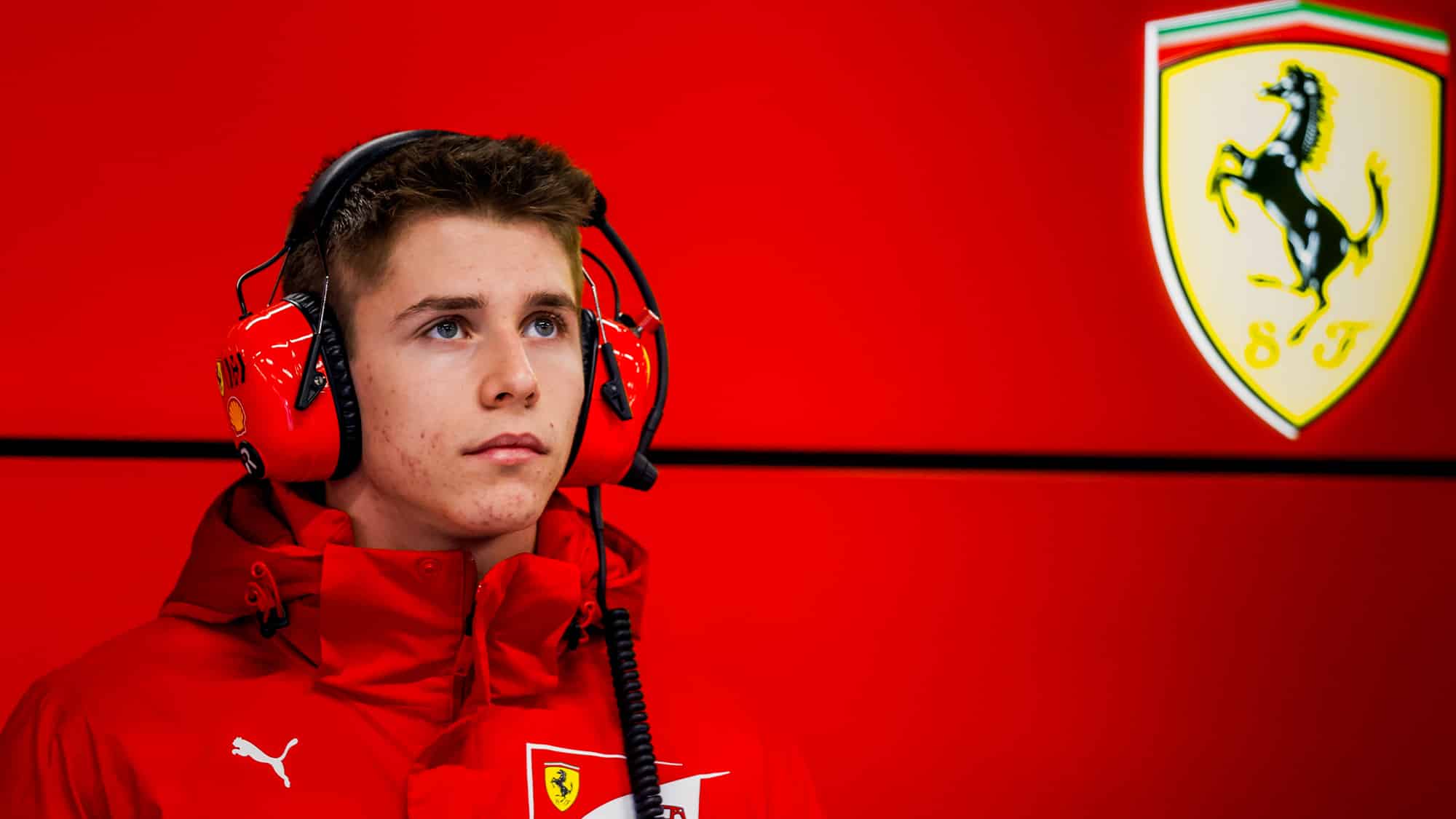
Arthur Leclerc will need a better season to follow his brother up the categories
Florent Gooden / DPPI
It could be a critical season for Arthur Leclerc in what will be his second campaign in FIA Formula 3.
Younger brother of Ferrari’s Charles Leclerc, he finished the year in 10th place with 79 points as both PREMA team-mates finished ahead of him including Dennis Hauger taking the title albeit in his second year of F3. It marked the first time Leclerc had finished outside of the top five in a single-seater series in his career.
A return to the top of the standings for the Monégasque isn’t out of the question though. He finished runner-up in the 2020 Formula Regional European Championship and did take two wins in last year’s F3 campaign.
Though his CV is hardly a disappointing effort, it’s the FDA competition that could lead to pressure throughout the 2022 season to grab the headlines and score results in order to remain at the front of a talented queue.
With Oliver Bearman and Rafael Câmara competing in regional Formula 4 this season, their potential promotion lays the pressure at Leclerc’s door to move on from F3 and to do so convincingly, something he is more than capable of doing.
The link to his brother will help his cause and any departure from the FDA is unlikely, but Ferrari won’t want to keep drivers back from a PREMA seat if those below Lelcerc are grabbing results in the lower categories.
He could do with some more consistency this F3 campaign after showing flashes of ability in fits and bursts in 2021. Whether that would result in a promotion regardless up to Formula 2 or a step in a different direction with the Prancing Horse is another question.
Oscar Piastri (Formula 1 – Alpine)
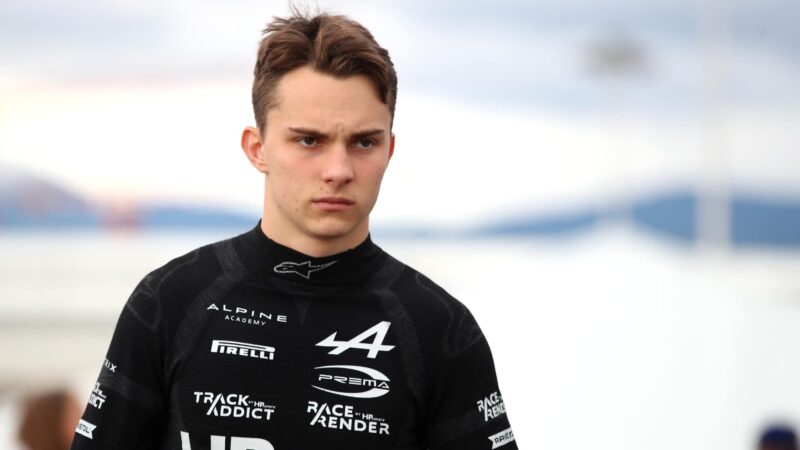
Piastri is eager to learn from Alonso in 2022
Joe Portlock - Formula 1/Formula Motorsport Limited via Getty Images
This is not a declaration that Oscar Piastri is unequipped for the challenges of Formula 1. Quite the contrary in fact. His junior career in the past two years has been beyond stellar, taking both the FIA Formula 3 and Formula 2 titles in consecutive seasons in 2020 and 2021.
The feat was last achieved by George Russell while Charles Leclerc also won both titles back-to-back, so it’s a good indicator of just how talented the Australian youngster is.
Stretching back a further year, Piastri also claimed the Formula Renault Eurocup title in 2019 ahead of fellow Alpine junior Victor Martins.
And yet Piastri finds himself on the sidelines when a Formula 1 seat beckoned having won the title on the penultimate rung of the single seater ladder in his first attempt.
The 20 year old will instead be fulfilling the role of reserve driver for Alpine in 2022, playing back up to Esteban Ocon and Fernando Alonso. While he has said he welcomes the chance to learn from a race winner and double world champion, his prospects of an F1 seat are very much in the hands of the Spaniard.
If Alonso continues to want to race in Formula 1, there is surely little chance Alpine will refuse his request while Ocon is locked up and under contract with the French team until 2024.
It means that despite his clear talent, Piastri finds himself on the outside looking in on a Formula 1 future and he may have to hope a seat opens up elsewhere before he gets a full time race seat beyond 2023.
